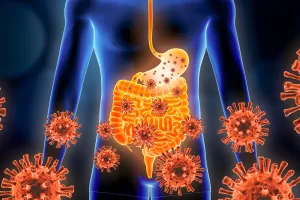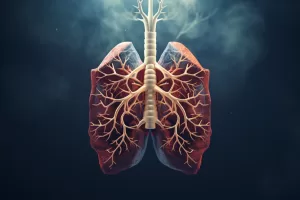The urinary tract plays a key role in removing various waste products from our body. This complex system is constantly working, filtering the blood and helping to maintain a complex internal balance. Sometimes he may be disturbed by Urinary Tract Infection, which are accompanied by many unpleasant symptoms. Learn more about their nature and how to deal with them.
What is Urinary Tract
The urinary system serves as a complex filter for blood. It takes away excess liquid, salts and wastes and eliminates them in the form of pee. This is one of the ways utilized to maintain the inner balance and actually the most important one.
Kidneys
Kidneys are at the heart of this system. These small organs look like two beans. They are located on the back above the hips. The filtration of blood and pee creation occurs here.
Ureters
When the pee is formed, it is moved through thin tubes called ureters. Each kidney has its own.
Bladder
This organ has a shape similar to a balloon and can change in volume. Here, pee is stored until the moment one decides to visit the bathroom and eliminate it.
Urethra
This is the last part of the system through which pee travels. It starts in the bladder and opens outside. Women’s urethra is shorter in comparison to men due to the physiological difference. Men’s urethra goes through the penis and that is why it is longer. This fact has an impact on the frequency of occurrence of urinary tract issues.
What is a Urinary Tract Infection (UTI)
UTI means a process of inflammation that starts because of bacteria. Urine is normally an aseptic that means it doesn’t contain any microorganisms. However, they can come from outside, usually from the urethra and move upwards causing certain health problems.
Types of UTIs
As bacteria can localize in all organs and tissues, UTIs are classified according to the infected place. There are three main points, where they stay the most often and cause major problems.
Urethritis (Urethra)
Usually, urethra serves as the starting point of the traveling of microorganisms. Still, they can stay here causing inflammation and unpleasant symptoms.
Cystitis (Bladder)
If left untreated, bacteria move upward and reach the bladder. Here they also have enough space and chances for development. When the bladder serves as a major point of inflammation, the condition is called cystitis.
Pyelonephritis (Kidneys)
The last point of bacteria’s journey is the kidneys. Their inflammation is the most dangerous and difficult condition for the patient. It is accompanied by the most severe symptoms and must be treated at once.
Causes of Urinary Tract Infections
As we have already mentioned, different microorganisms lead to certain issues in the urinary system. It is always important to find out their nature to treat the condition effectively.
Bacteria and its role in UTIs
The most common cause of the majority of issues is bacteria named E. coli. It lives in the lower intestines and does not provide any harm there. However, when it happens to enter the urinary tract, it brings a lot of damage.
Other bacteria, including those that cause sexually transmitted diseases, can also cause these issues. That is why the proper diagnostics is always required.
Symptoms of Urinary Tract Infections
The main problems that patients report look as follows:
- a strong and persistent desire to urinate;
- frequent peeing with tiny amounts;
- pain or burning sensation while urinating;
- cloudy pee with bad smell;
- pink or red shade of urine;
- pain in the pelvic area or lower back.
If the inflammation is too serious and strong, the patient may feel exhausted, experience chills, fever, nausea or vomiting and even mental disturbance.
Diagnosis of Urinary Tract Infections
An accurate diagnostic is the first step to the proper treatment. One must visit the doctor at once when the disturbing symptoms occur and pass a few simple tests to reveal the cause of the problem and start the required treatment.
Urinalysis and urine culture
The two main analyses include:
- The analysis of urine. A patient pees into a special cup and the collected sample is sent to a laboratory, where it is examined for signs of infection.
- The investigation of the urine culture. The same sample is utilized to grow and identify bacteria present in it. This test helps to select the required antibiotics that correspond to the cause of the disease.
- When the treatment is unsuccessful, the following additional investigations are prescribed:
- Ultrasound helps to see the condition of the urinary system and all its parts. This procedure is painless and very informative.
- Computed tomography. This imaging test also provides the visualization of inner organs. It is more precise and is required for accurate diagnostics.
- Cystoscopy. This procedure is utilized to investigate the condition of the bladder. The thin tube is put inside through the urethra.
These procedures are not very common in simple cases. Usually, a urine test is more than enough for diagnostics and prescription of the proper treatment.
Treatment of Urinary Tract Infections
The main aim of the treatment is to kill bacteria and restore the aseptic space inside. This is done with the help of antibiotics. In addition, doctors may prescribe other medicines to relieve unpleasant symptoms.
Antibiotics
The most common antibiotics utilized for this purpose include:
- nitrofurantoin;
- sulfonamides;
- penicillins;
- cephalosporins;
- fluoroquinolones.
The doctor must prescribe suitable medicine after the analysis and the task of the patient is to follow the recommendations. Otherwise, bacterial-resistant strains may appear or the issue becomes recurrent.
Pain management
As patients may experience severe pain while urinating or in their bodies, acetaminophen (Tylenol) or ibuprofen (Motrin) are prescribed. These OTC medicines relieve pain and diminish the discomfort caused by disease.
Prevention of Urinary Tract Infections
As usual, it is much easier to prevent these problems than to treat them. The first thing to do for this is to follow good hygiene practices. It is especially important for women.
Always wipe from front to back after visiting the bathroom. Change your period products regularly during your menstruation.
Urination habits
First and foremost, it is important to pee regularly when you feel the urge. The body creates the wastes for elimination not for storing them inside. After peeing, make yourself clean and dry.
In addition, it is recommended to pee before having sex and right after it. This process may lead to the introduction of bacteria to the urethra. However, when you pee, you just wash out all the bacteria.
Hydration
Drinking enough pure water every day also contributes to the normal work of the kidneys. On average, the body required from 6 to 8 glasses but it depends on the weather condition, age, weight and physical activity. Anyway, take care of your hydration to help the body to eliminate waste properly.
Diet and probiotics
Plain yogurts and other dairy products contain bacteria that are useful for our health and can prevent harmful microorganisms from acting. Probiotics are special medicines that contain these useful bacteria and can be prescribed to improve the health of the intestines.
To avoid the irritation of the bladder and other parts of the system, it is better to avoid eating too much acidic fruit and spicy food. A well-balanced diet is always good for health, so one can follow basic recommendations to maintain the health of the whole body.
Living with Recurrent Urinary Tract Infections
If left untreated or due to the nature of the microorganism, a UTI may become recurrent. In this case, even small hygiene or diet or other issues may evoke the disease with all its unpleasant system.
Such a condition must be diagnosed and then the healthcare provider gives a piece of advice on how to live with it. Usually, he prescribes the antibiotics that should be taken for early prevention of the symptoms or at once when they appear. Furthermore, the patient must take care of personal hygiene, hydration and follow the well-balanced diet.
It is also important to select loose-fitting and cotton underwear and switch to water-based lubricants for sex. Women should consult the doctor on the methods of birth control, as not all of them are suitable in the case of recurrent infections.
This situation is not life-threatening. However, it requires certain attention and alert to prevent severe inflammation and major health issues.
Summary
Altogether, we rarely care of our urinary tract unless some troubles occur. However, there are useful things that can be done for the prevention of certain diseases. Therefore, follow hygiene rules, pay attention to your urination habits, hydration and diet. If any unpleasant symptoms occur, do not ignore them, visit the specialist and follow the treatment scheme to avoid bad consequences.
FAQ
How do you get rid of a urinary tract infection fast?
All such conditions must be treated with antibiotics. The latter is prescribed by the doctor after diagnostics. Their intake relieves the problem in a few days.
What is the main cause of urine infection?
Various microorganisms may cause these infections but in most cases, they appear because of E. coli. The latter normally lives in the intestines and may reach the urethra under certain conditions.
Does UTI go away on its own?
Sometimes the symptoms disappear on their own. However, it is dangerous for health to leave the condition untreated. Moreover, it may lead to recurrent process and other disturbing kidney issues.
What are 5 signs and symptoms of a UTI?
A person experiences a persistent urge to urinate but pees only small liquid and the process is usually painful. Furthermore, the color and smell of urine change, and pain in the abdomen or lower back appears.







